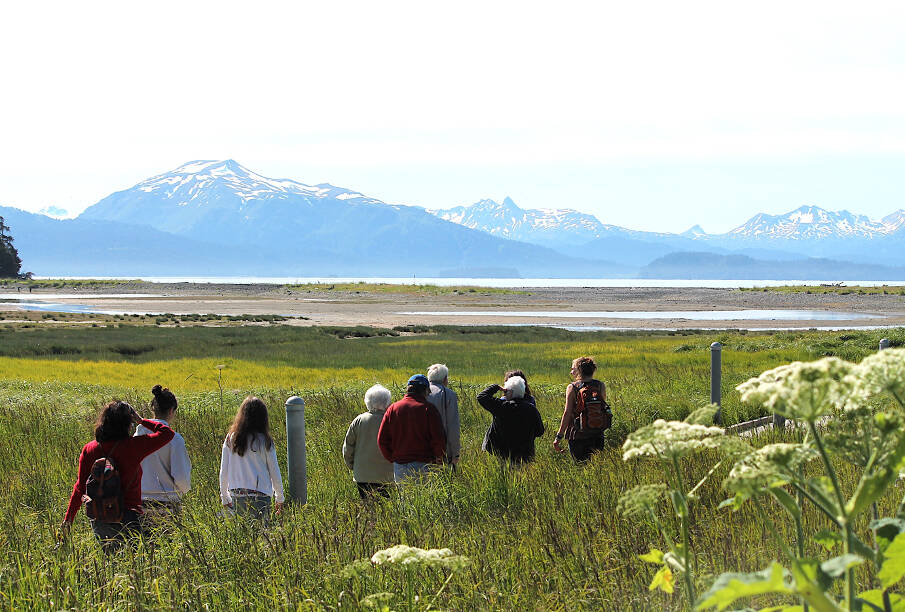Kachemak Bay Watershed Collaborative, a coalition of stakeholders working to address issues affecting the bay watershed, is recruiting for participants across the region to contribute to objectives for the collaborative.
Sponsored by the Chugach Regional Resources Commission (CRRC), a tribal organization representing tribal communities in Southcentral Alaska, the project started two years ago and will include residents in Homer, Kachemak Selo, Voznesenka, Razdolna, Seldovia, Nanwalek and Port Graham.
It will also look for stakeholders representing tribal entities and watershed management facilities, such as U.S. Fish and Wildlife, Alaska Department of Natural Resources and the Alaska Department of Fish and Game.
The collaborative brings the groups together in concern for the resiliency of the watershed, the marine and freshwater environment around Kachemak Bay particularly related to environmental impacts of climate transition, Harold Shepherd, principal consultant for the group, said.
Bringing together all of these dimensions of social organizations is what “will give the collaborative its clout,” Shepherd said. His business in Fritz Creek is Water Policy Consulting, focusing on water and human rights issues in Alaska.
Feb. 3 will be the first in-person meeting for stakeholders. The public event will take place at the Kachemak Bay Campus in Homer. There is not an age restriction on the group, it is open to high school students, the general public, any one who is interested in the future of our local watershed.
“We’ll take a look at a big map and invite folks to come in and show us where and what their interests are. It will be the first step in building the resiliency plan,” Shepherd said.
One topic the group might talk about is the increasing temperature in freshwater rivers and streams.
The scope of the problem requires a multifaceted response,“there are conductivity issues, there’re groundwater issues and there is also a jurisdictional component. There are many state and federal agencies in management features and they all have their own boundaries; we need to consider ecosystem as a whole,” he said.
Collaboration is a key for that.
There are many stakeholder and user groups with different preferences.
“Another issue to consider is recreational vehicles and live-stock grazing in critical habitat areas,” Shepherd said. “There a lot of what are typically called non-climate stressors, such as mining or oil and gas development or lease sales, that have the ability to exacerbate the effects of climate change.”
The preliminary phase of the project ends in December 2023.
“By then we should have regular meetings established and a more structured outline of the general watershed resiliency plan,” Shepherd said.
If you are interested in joining the Homer stakeholder user group you can reach Hal Shepherd for more information at halshepherdwpc@gmail.com or 907-491-1355.
Emilie Springer can be reached at emilie.springer@homernews.com.



